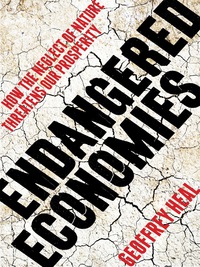











! Required information (The following information applies to the questions displayed below.] Sun Corporation received a charter that authorized the issuance of 117,000 shares of $7 par common stock and 19,000 shares of $125 par, 6 percent cumulative preferred stock. Sun Corporation completed the following transactions during its first two years of operation: Year 1 Jan. 5 sold 17,550 shares of the $7 par common stock for $9 per share. 12 Sold 1,900 shares of the 6 percent preferred stock for $135 per share. Apr. 5 Sold 23,400 shares of the $7 par common stock for $11 per share. Dec. 31 During the year, earned $310,900 in cash revenue and paid $237,800 for cash operating expenses. 31 Declared the cash dividend on the outstanding shares of preferred stock for Year 1. The dividend will be paid on February 15 to stockholders of record on January 10, Year 2. 31 closed the revenue, expense, and dividend accounts to the retained earnings account. Year 2 Feb. 15 Paid the cash dividend declared on December 31, Year 1. Mar. 3 sold 2,850 shares of the $125 par preferred stock for $145 per share. May 5 Purchased 450 shares of the common stock as treasury stock at $14 per share. Dec. 31 During the year, earned $248,300 in cash revenues and paid $176,400 for cash operating expenses. 31 Declared the annual dividend on the preferred stock and a $0.50 per share dividend on the common stock. 31 closed revenue, expense, and dividend accounts to the retained earnings account. a. Prepare journal entries for these transactions for Year 1 and Year 2 and post them to T-accounts. (If no entry is required for a transaction/event, select "No journal entry required" in the first account field. Round your intermediate calculations and final answer to the nearest dollar amount. Select "12/31 cl." for all the closing entries.) View transaction list Journal entry worksheet Sold 17,550 shares of the $7 par common stock for $9 per share. Note: Enter debits before credits. Date General Journal Debit Credit Jan 05 Record entry Clear entry View general journal 1 Sold 17,550 shares of the $7 par common stock for $9 18 per share. 2 Sold 1,900 shares of the 6 percent preferred stock for $135 per share. 3 Sold 23,400 shares of the $7 par common stock for $11 per share. Credit 4 Record cash revenue earned. 5 Record payment for operating expenses. 6 Declared the cash dividend on the outstanding shares of preferred stock for Year 1. The dividend will be paid on February 15 to stockholders of record on January 10, Note : = journal entry has been entered Record entry Clear entry View general journal F LIIV VIVIHVIIM YY V PUL VIT 18 February 15 to stockholders of record on January 10, Year 2 7 Record the closing entry for service revenue. 00 Record the closing entry for operating expenses. 9 Record the closing entry for dividends. Credit 10 Paid the cash dividend declared on December 31, Year 1. 11 Sold 2,850 shares of the $125 par preferred stock for $145 per share. 12 Purchased 450 shares of the common stock as treasury to Note : = journal entry has been entered Record entry Clear entry View general journal 12 Purchased 450 shares of the common stock as treasury stock at $14 per share. 18 13 Record cash revenue earned. 14 Record payment for operating expenses. 15 Declared the annual dividend on the preferred stock and a $0.50 per share dividend on the common stock. Credit 16 Record the closing entry for revenue accounts. 17 Record the closing entry for operating expenses. 18 Record the closing entry for dividends. Note : = journal entry has been entered Record entry Clear entry View general journal Year 1 Cash Dividends Payable Year 1 Year 1 End. Bal. End. Bal. Retained Earnings Preferred Stock Year 1 Year 1 End. Bal. End. Bal. Common Stock Paid-in Capital in Excess of Par-Preferred Stock Year 1 Year 1 End. Bal. End. Bal. Dividends Paid-in Capital in Excess of Par-Common Stock Year 1 Year 1 End. Bal. End. Bal. Service Revenue Operating Expenses Year 1 Year 1 End. Bal. End. Bal. Year 2 Cash Dividends Payable Year 2 Year 2 Beg. Bal. Beg. Bal. End. Bal. End. Bal. Retained Earnings Preferred Stock Year 2 Year 2 Beg. Bal. Beg. Bal. End. Bal. End. Bal. Common Stock Paid-in Capital in Excess of Par-Preferred Stock Year 2 Year 2 Beg. Bal. Beg. Bal. End. Bal. End. Bal. Dividends Paid-in Capital in Excess of Par-Common Stock Year 2 Beg. Bal. Year 2 Beg. Bal. End. Bal. End. Bal. Treasury Stock (Common) Service Revenue Year 2 Year 2 Beg. Bal. Beg. Bal. End. Bal. End. Bal. Operating Expenses Year 2 Beg. Bal. End. Bal. b. Prepare the balance sheets at December 31, Year 1 and Year 2. (Amounts to be deducted should be Indicated with minus slgn.) SUN CORPORATION Balance Sheet As of December 31, Year 1 Assets Total assets $ 0 Liabilities 0 Total liabilities Stockholders' equity Total paid-in capital 0 0 Total stockholders' equity Total liabilities and stockholders' equity 0 SUN CORPORATION Balance Sheet As of December 31, Year 2 Assets $ 0 Total assets Liabilities 0 Total liabilities Stockholders' equity Total paid-in capital 0 0 Total stockholders' equity Total liabilities and stockholders' equity 0 C-1. What is the number of common shares outstanding at the end of Year 1? At the end of Year 2? How many common shares had been Issued at the end of Year 1? At the end of Year 2? (Amounts to be deducted should be Indicated with minus slgn.) Schedule of Number of Shares of Common Stock Shares Shares Issued Outstanding Year 1 Totals 0 0 Year 2 Totals 0 0 c-2. Is any differences between issued and outstanding common shares for Year 1 and for Year 2? Issued common shares Outstanding common shares


















